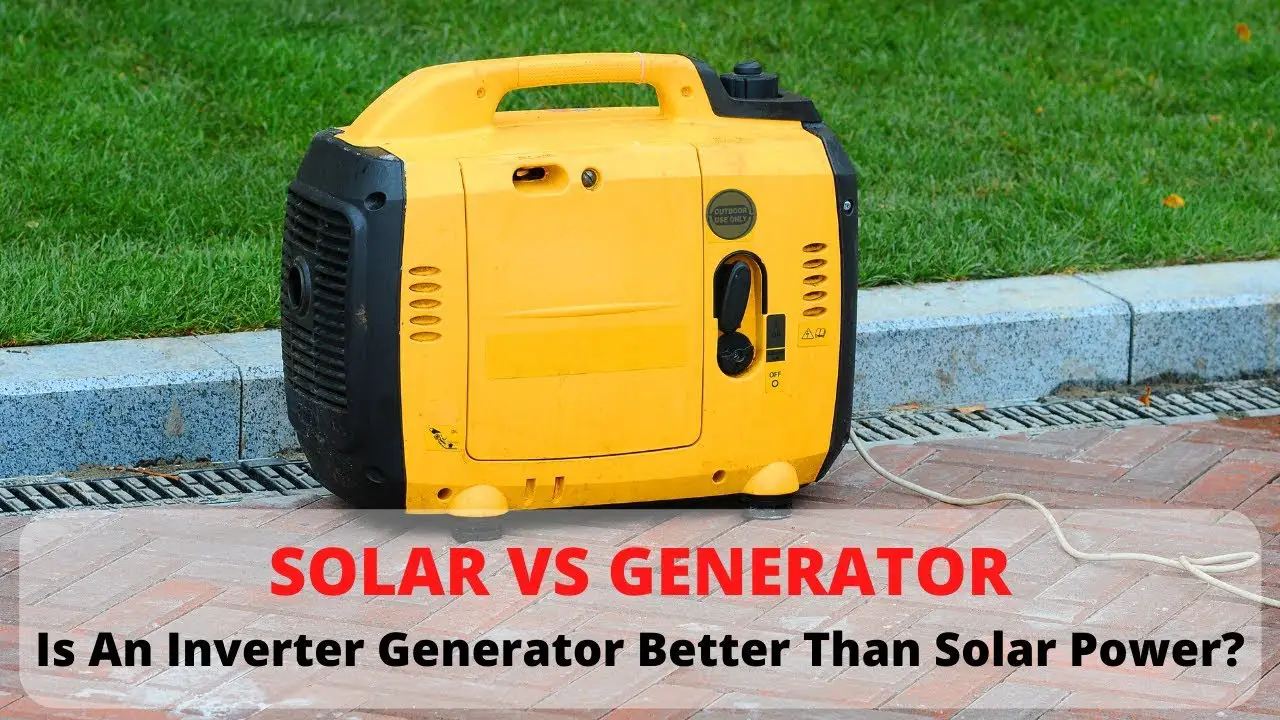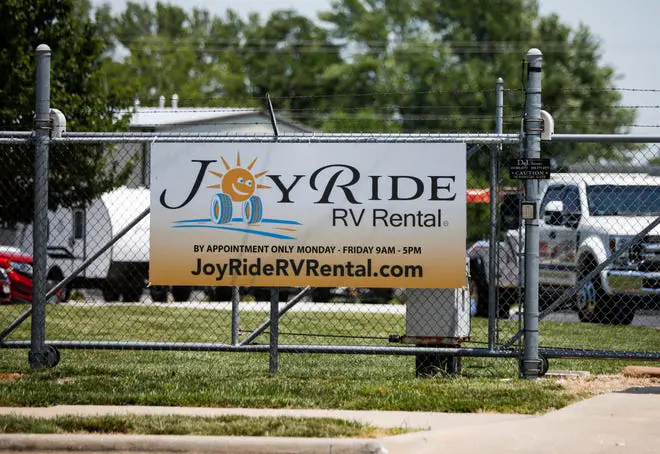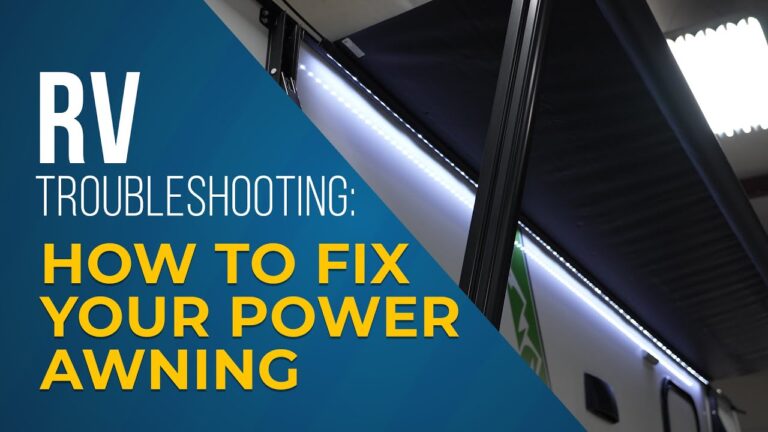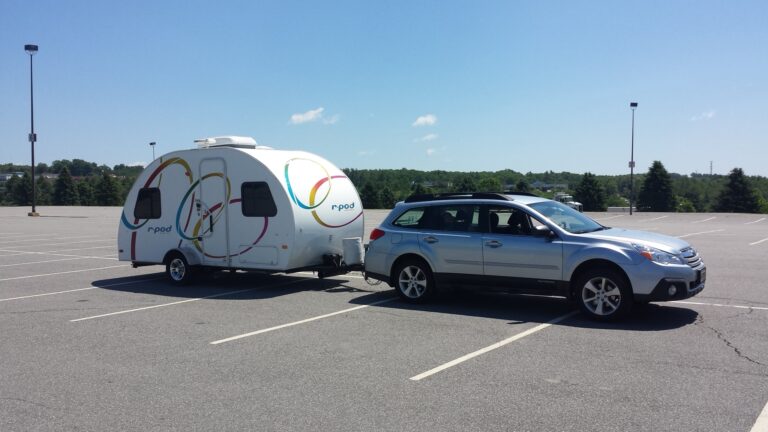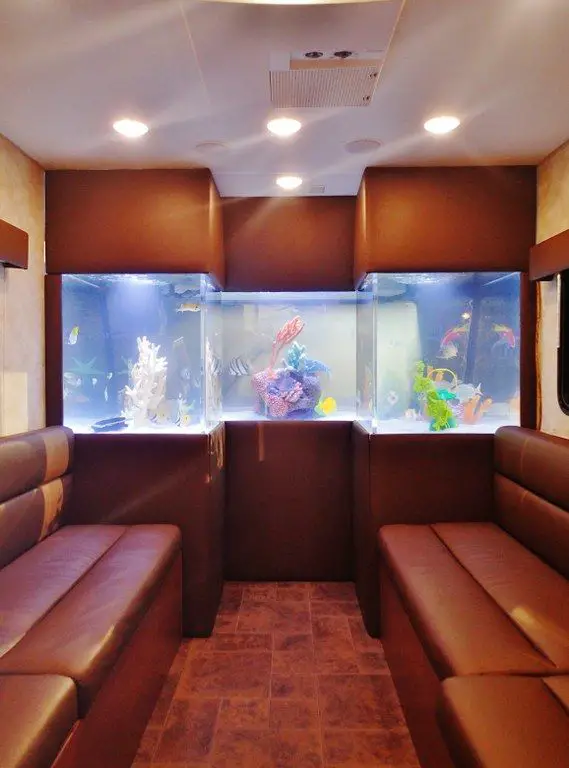Rv Inverter Vs Generator
An RV inverter converts DC power from the battery into AC power, while a generator produces AC power by burning fuel. RV inverters are convenient for powering small electronic devices, while generators are better for running larger appliances and charging the RV’s battery.
Inverters are quiet and require less maintenance, but generators offer more power and are useful when camping off-grid or during power outages. Both options have their advantages and drawbacks, so choosing between an inverter and a generator depends on the specific needs and preferences of the RV owner.
1. Benefits Of Using An Rv Inverter
The benefits of using an RV inverter are numerous. First and foremost, an RV inverter provides a flexible power source for on-the-go living. Whether you are boondocking or simply need backup power, an inverter allows you to have electricity whenever and wherever you need it.
Another advantage of an RV inverter is its quiet operation. Unlike a generator that can be noisy and disruptive, an inverter operates quietly, ensuring a peaceful camping experience. This is especially important if you enjoy spending time in nature and don’t want the noise of a generator to disturb the tranquility.
Using an RV inverter also eliminates the need for fuel and reduces emission levels. Unlike a generator that requires gasoline or propane, an inverter converts DC power from your battery into AC power, making it a more environmentally-friendly option.
Additionally, an RV inverter is suitable for powering sensitive electronic devices. Inverters produce a clean and stable power output, which is essential for delicate appliances like laptops, smartphones, and other electronics. With an inverter, you can confidently use your devices without worrying about any potential damage.
2. Advantages Of Using An Rv Generator
| RV generators offer several advantages over RV inverters. One of their key advantages is their high power output which allows them to run multiple appliances simultaneously. This is particularly beneficial for larger RVs or when traveling with a group of people who all need to use different appliances at the same time.Another advantage of RV generators is that they provide a reliable power source in remote or off-grid locations. Unlike inverters which rely on batteries that need to be recharged, generators can run continuously as long as they have fuel.RV generators also have the ability to run heavy-duty equipment and air conditioners. These appliances often require a large amount of power, which may exceed the capabilities of an inverter.Additionally, generators typically have a long runtime due to their larger fuel capacity. This means you don’t have to worry about refueling as frequently, allowing for a more convenient and uninterrupted camping experience. |
3. Factors To Consider When Choosing Between An Rv Inverter And Generator
Factors to Consider When Choosing Between an RV Inverter and Generator:
| Power requirements and electrical load of your RV: | Consider the electrical needs of your RV, including the appliances and devices you plan to use. An RV inverter can provide power for smaller loads, while a generator is better suited for high-demand appliances like air conditioners and microwaves. |
| Noise levels and campground regulations: | Keep in mind that RV generators can be noisy, which may be restricted in certain campgrounds. If noise is a concern, an inverter can be a quieter alternative. |
| Fuel availability and sustainability: | Consider the availability of fuel types such as gasoline, diesel, or propane, as well as the sustainability aspect. Inverters can be powered by batteries and renewable energy sources, making them more eco-friendly. |
| Cost considerations and initial investment: | Compare the upfront cost and long-term expenses of both options. Inverters may have a higher initial investment, but they have lower maintenance costs compared to generators. |
Consider these factors before deciding between an RV inverter and generator to ensure that you choose the option that best meets your power needs, noise preferences, fuel availability, and budget.
4. Comparing Performance And Efficiency
When comparing the performance and efficiency of RV inverters and generators, it is important to consider the power output and wattage capacity of each. Inverters typically have a lower power output compared to generators, with most inverters ranging from 3000 to 5000 watts. On the other hand, generators can provide power outputs ranging from 3000 to 10,000 watts or even more.
In terms of fuel efficiency and runtime, inverters have the advantage. Inverters are powered by batteries which can be charged using the vehicle’s engine or solar panels, resulting in a longer runtime compared to generators which require fuel. Additionally, inverters produce clean energy without emissions, while generators burn fuel and emit exhaust.
Noise levels and decibel ratings are also important considerations for a peaceful camping experience. Inverters are generally quieter than generators, producing noise levels of around 50 to 60 decibels. Generators, on the other hand, can be louder, especially larger ones, with noise levels ranging from 60 to 80 decibels or more.
| Rv Inverter | Generator | |
|---|---|---|
| Power output (watts) | 3000-5000 | 3000-10,000+ |
| Fuel Efficiency | High | Variable |
| Noise Levels (dB) | 50-60 | 60-80+ |
5. Maintenance And Service Requirements
Regular maintenance tasks for inverters and generators include checking for loose connections, cleaning the equipment regularly to remove any dust or debris, and inspecting the fuel or battery levels. Inverters may require periodic firmware updates to ensure optimal performance. Troubleshooting common issues with inverters involves checking the output voltage, investigating any error codes displayed, and inspecting the fuses. For generators, common troubleshooting includes checking the fuel supply, spark plugs, and air filters, as well as conducting load tests. In the case of major issues or repairs, it is advisable to seek professional help or consult the manufacturer’s guidelines. Availability of service centers and warranty options varies depending on the brand and location. It is recommended to check the manufacturer’s website or contact customer support for information on authorized service centers and warranty coverage for your specific inverter or generator model.
6. Eco-friendliness And Environmental Impact
RV inverters and generators both provide power for your RV, but they differ in their eco-friendliness and environmental impact. While generators burn fuel and emit exhaust, inverters use energy stored in batteries and produce no emissions, making them a more environmentally friendly option for RV owners.
Choose wisely for a greener RV experience.
Green Alternatives For Rv Power Sources
When comparing RV inverters and generators, it is essential to consider their eco-friendliness and environmental impact. Generators are known to produce carbon emissions, which contribute to air pollution and harm the environment. On the other hand, renewable energy options like solar inverters offer a greener alternative. Solar inverters harness sunlight and convert it into usable power, reducing reliance on fossil fuels and minimizing environmental impact. By choosing a solar inverter for your RV, you can significantly reduce your carbon footprint and contribute to a more sustainable future. Additionally, solar power is free, which means long-term cost savings for RV owners.
In conclusion, when weighing the environmental impact, it is evident that solar inverters are a more sustainable choice than generators. By opting for renewable energy solutions, RV owners can enjoy the convenience of power while minimizing their carbon emissions. Solar inverters offer a clean, green, and cost-effective power source for RVs, making them an excellent choice for environmentally conscious travelers.
7. Choosing The Right Power Source For Your Rv
Assessing your power needs and usage patterns is crucial for finding the best power source for your RV. Consider the appliances and electronics you will be using, their power requirements, and how frequently they will be used. This will help determine the size and type of power source you need.
Budget considerations and long-term cost analysis are also important factors to consider. While generators may have a higher upfront cost, they can provide a consistent and reliable power source. On the other hand, inverters are more cost-effective in the long run due to their fuel efficiency and ability to use energy from the RV’s battery.
Considering a hybrid power system for optimal flexibility is another option. This combination of an RV inverter and a generator allows you to utilize both power sources and switch between them based on your needs and available resources.

Credit: www.amazon.com
Frequently Asked Questions For Rv Inverter Vs Generator
What Is The Difference Between An Rv Inverter And Generator?
An RV inverter converts DC power from the RV batteries into AC power, while a generator creates AC power using a fuel source. The main difference is that an inverter uses existing batteries, providing power for short durations, while a generator can provide continuous power for extended periods.
How Does An Rv Inverter Work?
An RV inverter converts the 12-volt DC power from your RV’s batteries into 120-volt AC power, allowing you to use household appliances and electronics. It contains a system of electronics that accurately converts the power, providing a reliable source of AC power for your RV.
What Are The Advantages Of Using An Rv Inverter Over A Generator?
Using an RV inverter offers several advantages over a generator. It is quieter, more fuel efficient, and doesn’t require refueling. It also allows you to use your RV’s batteries, saving on fuel costs. Additionally, an inverter provides a more stable power supply, reducing the risk of power surges that could damage your electronics.
Can An Rv Inverter Replace A Generator?
No, an RV inverter is not a direct replacement for a generator. While an inverter can provide AC power for short durations, it is not designed for extended use. If you need a continuous power supply or plan on using high-wattage appliances, a generator is still necessary.
Combining both an inverter and a generator can provide the best of both worlds in terms of power options for your RV.
Conclusion
To sum up, when deciding between an RV inverter and a generator, it ultimately comes down to your specific needs and preferences. Both options have their advantages and disadvantages. While a generator provides a reliable and continuous source of power, an inverter offers quieter operation and better fuel efficiency.
Consider factors like power requirements, noise tolerance, and budget to make an informed decision that suits your RV lifestyle. Happy traveling!

